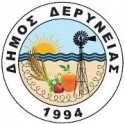The European Commission has welcomed a list of ‘best practices’ agreed by the financial sector, and consumer and business organisations, to help further mitigate the impact of the coronavirus pandemic. It sets out concretely how different market participants can support citizens and businesses throughout the crisis.
Today’s ‘best practices’ cover several issues, including:
- Payment moratoria for consumer and business loans, and for insurance contributions: these measures can help those facing financial difficulties by deferring payments;
- Enabling safer cashless payments while ensuring cash payments remain available for those who need them;
- Ensuring loans aimed at mitigating the impact of coronavirus are provided swiftly, and that the fees and interest rates incurred are fair;
- Legitimate insurance claims are processed and paid out as quickly as possible.
Valdis Dombrovskis, Executive Vice-President for an Economy that Works for People said: “Our goal right now is to make sure that the liquidity taps are kept turned on and that consumers and especially smaller companies can get the financial support they need. I warmly welcome the extensive dialogue that we have had with the European financial sector, and business and consumer representatives. Our fruitful discussions have led to today’s ‘best practices’ list. I invite all those concerned to make full use of this valuable tool. We will take stock of the situation in September and continue the discussion on how to best ensure continuous flows of credit, as part of the recovery.”
Today’s ‘best practices’ list follows two roundtable meetings facilitated by the Commission with consumer and business representatives, European banks, other lenders, and the insurance sector. The discussions are part of a wider effort by the Commission to increase lending to the real economy, including a banking package in April. The Commission will facilitate a further roundtable in September to take stock of progress and will continue the dialogue with stakeholders to support lending during the recovery. All participants are encouraged to follow these best practices.
Today’s text has been agreed by all roundtable participants and includes:
- Best practices for bank and non-bank lending to consumers;
- Best practices for bank and non-bank lending to businesses;
- Best practices for insurers.
Background
The economic shock caused by the coronavirus pandemic is having a far-reaching impact on businesses and consumers. On 28 April 2020, the Commission adopted a banking package to help facilitate bank lending to support the economy. The swift agreement of the package by the European Parliament and Council has meant that the targeted legislative changes included in the package can already be in place for the second quarter of 2020.
As part of this package, the Commission announced a dialogue with the European financial sector, as well as business and consumer representatives. The purpose of this dialogue was to explore how different financial players could support citizens and businesses throughout the pandemic. On 28 May, the Commission organised a first roundtable meeting with stakeholders to discuss relief measures where all represented parties declared their openness to cooperation and dialogue. As a follow up, on 29 June, the Commission organised a second roundtable meeting. Today’s ‘best practices’ list was agreed following this meeting.
Over 25 organisations participated in both roundtables including from:
- Consumer organisations
- Business federations
- Insurance companies
- Banks
For more information
Link to today’s ‘best practices’
Press contact
- Daniel FERRIE
Phone +32 2 298 65 00
Mail daniel.ferrie@ec.europa.eu
- Aikaterini APOSTOLA
Phone +32 2 298 76 24





